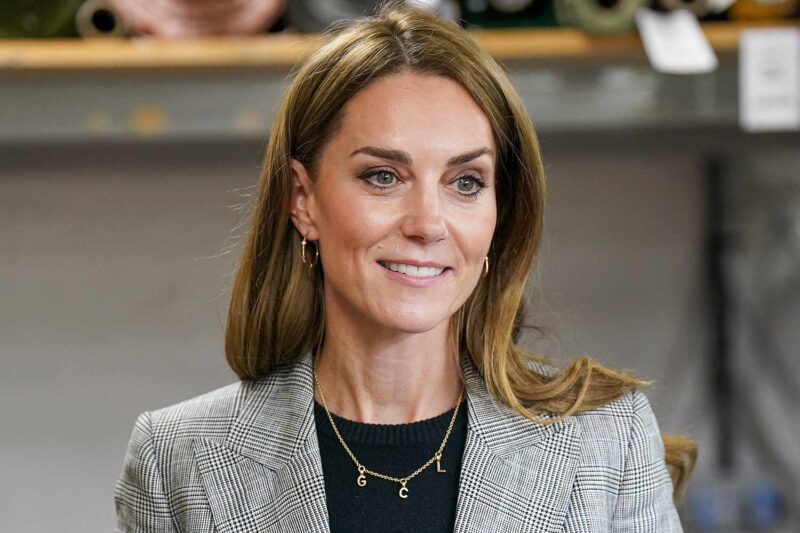The top less Kate Middleton controversy drew global headlines and ignited debates about privacy in the modern media world. The photographs published without consent highlighted how far some outlets are willing to go for a sensational story. Public discussion grew quickly, covering not only the royal family but also wider concerns about personal dignity and journalistic responsibility. While many condemned the invasion of privacy, others argued about freedom of the press. This balance between rights and public interest continues to influence how news organizations operate.
- The Evolving Role Of Privacy In Public Life
- Growing Demands For Responsible Journalism
- Influence Of Technology On Media Exposure
- How Public Curiosity Shapes Coverage
- Legal Frameworks Protecting Personal Rights
- The Psychological Effects On Individuals
- Historical Examples Of Media Overreach
- Balancing Public Interest With Ethical Standards
- The Role Of Social Media In Amplifying Scandals
- Lessons For Future Generations Of Reporters
- Changing Expectations From The Audience
- The Importance Of Dignity And Respect
- Moving Toward Solutions That Protect Privacy
The Evolving Role Of Privacy In Public Life
Society has always been fascinated with the lives of public figures. Yet with the rise of instant digital sharing, private moments can be exposed globally within minutes. This has created a new level of pressure on celebrities and leaders, forcing many to reconsider how they interact with the outside world.
Growing Demands For Responsible Journalism
Journalists are expected to inform the public, but ethical boundaries are frequently tested. Some argue that stories like the top less Kate Middleton incident reveal the risks of unregulated reporting. Responsible journalism requires finding truth without exploiting individuals.
Influence Of Technology On Media Exposure
Cameras, smartphones, and social networks have created an environment where almost anyone can act as a publisher. For public figures, this makes privacy nearly impossible to guarantee. The speed of sharing adds to the challenge of containing sensitive material once it appears online.
How Public Curiosity Shapes Coverage
Public appetite for scandal and exclusive photos pushes media outlets toward questionable choices. Even when editors understand the ethical problems, the pressure to capture audience attention often wins. The cycle of supply and demand drives more invasive coverage.
Legal Frameworks Protecting Personal Rights
Different countries have varying laws around privacy and press freedom. In some regions, strict protections exist, while in others, broad allowances for reporting are given. The case involving top less Kate Middleton demonstrated how international differences can complicate legal action.
The Psychological Effects On Individuals
Beyond legal battles, such invasions of privacy create lasting emotional impacts. For those targeted, it may lead to stress, anxiety, and loss of trust in the media. Public figures often appear strong, but moments like these show their vulnerability.
Historical Examples Of Media Overreach
History includes many moments where the press pushed boundaries. From the pursuit of Hollywood stars in the mid-20th century to coverage of political figures, the temptation to cross ethical lines has always existed. These incidents remind us of recurring patterns.
Balancing Public Interest With Ethical Standards
A free press remains vital for democracy, but it must coexist with respect for individual rights. Discussions around limits are not about silencing journalism but ensuring responsible reporting. Finding this balance remains an ongoing challenge worldwide.
The Role Of Social Media In Amplifying Scandals
When controversial images or stories surface, social media accelerates their spread. Platforms encourage sharing, often without thought for the harm caused. Once material circulates widely, removing it becomes almost impossible.
Lessons For Future Generations Of Reporters
The top less Kate Middleton story provides a case study for students of journalism. It emphasizes why integrity matters more than instant popularity. Aspiring reporters must learn that credibility builds lasting trust, unlike sensationalism, which fades quickly.
Changing Expectations From The Audience
Modern audiences are increasingly aware of media ethics. Readers and viewers sometimes call out irresponsible behavior, which pressures outlets to rethink strategies. Public feedback plays a major role in shaping future coverage norms.
The Importance Of Dignity And Respect
At the heart of the debate lies a simple truth: every individual deserves respect. Whether famous or not, human dignity should guide decisions. Media professionals who uphold these values contribute positively to society.
Moving Toward Solutions That Protect Privacy
Legal reforms, ethical guidelines, and audience education all contribute to progress. While perfection may not be possible, greater awareness of boundaries can reduce future violations. Lessons from past controversies guide improvements.



